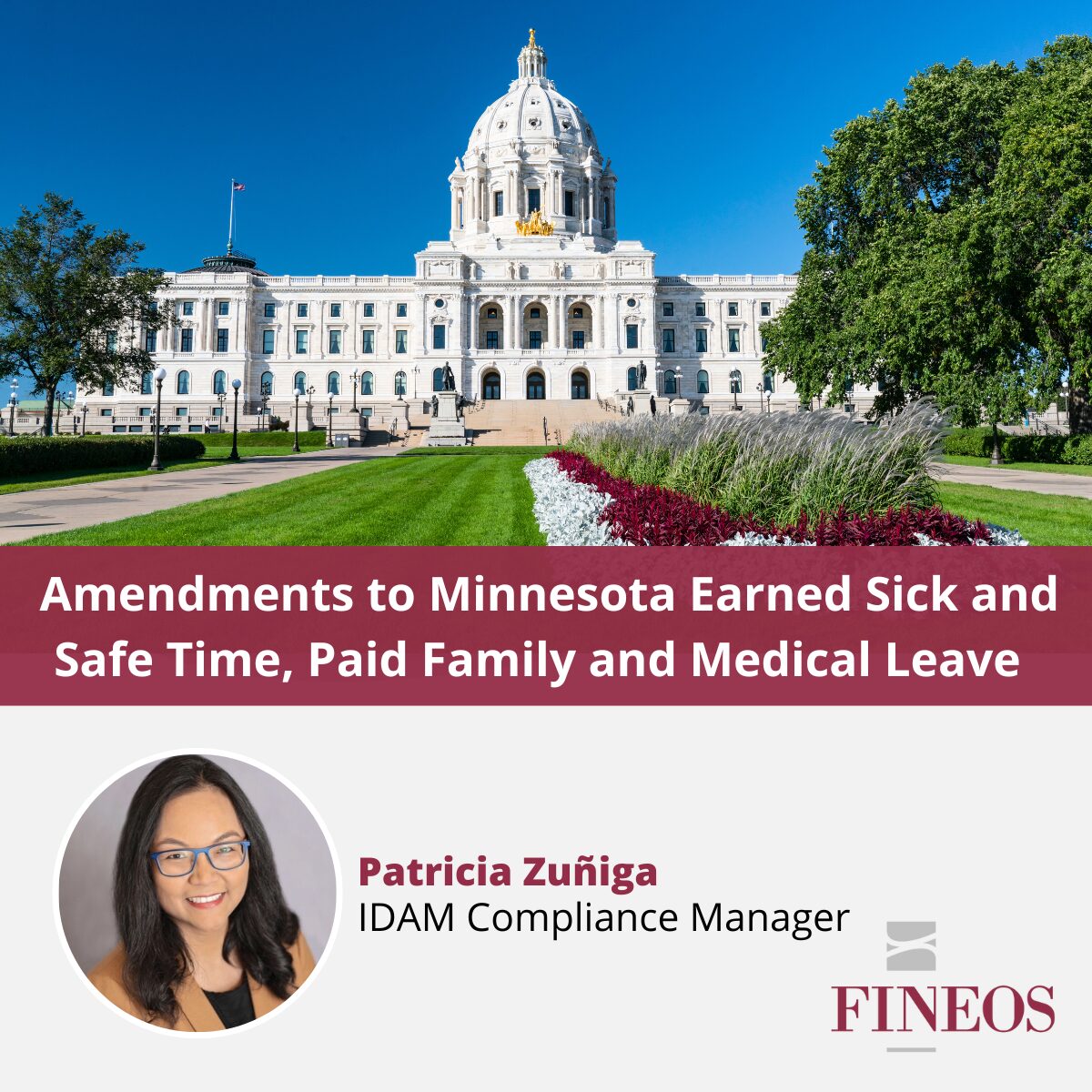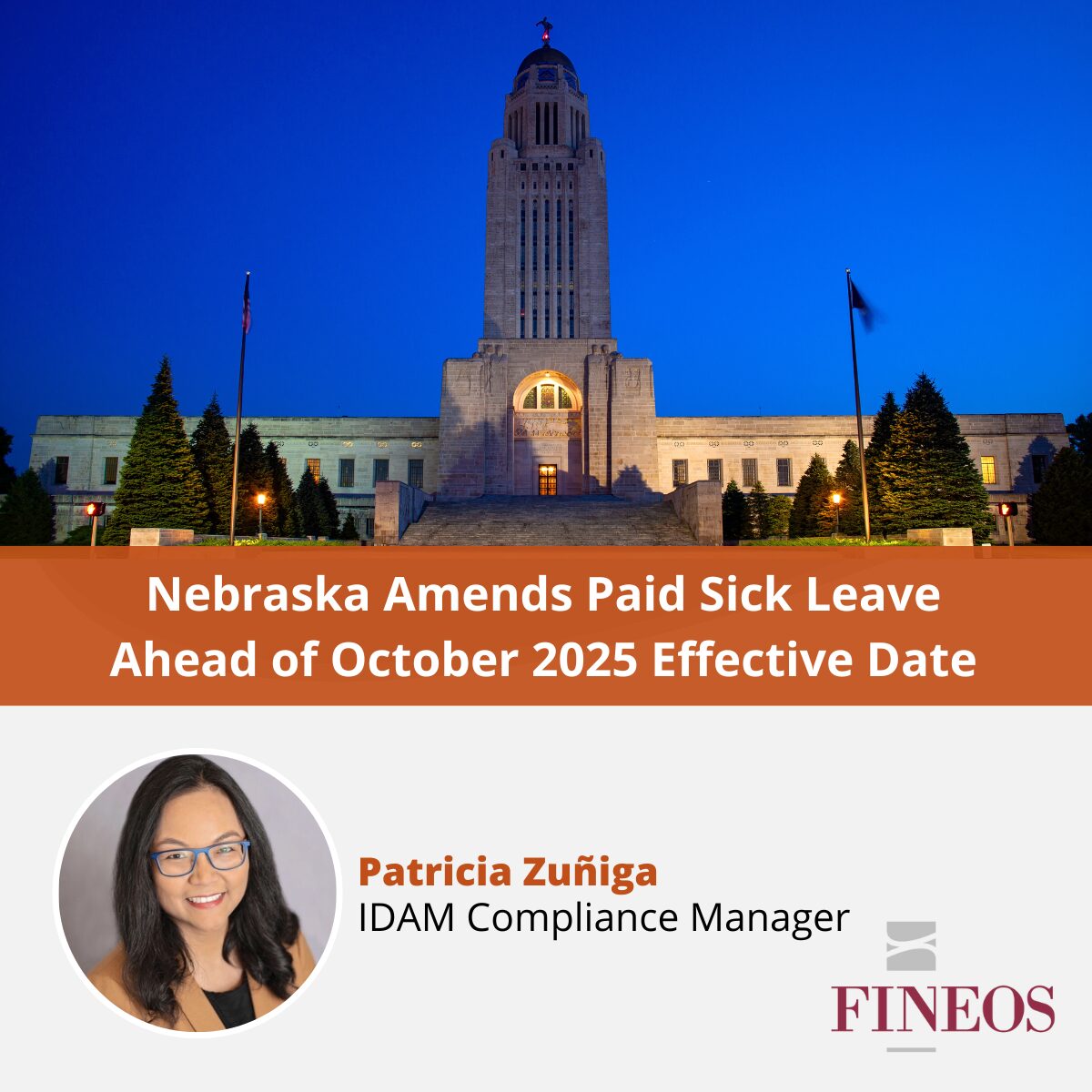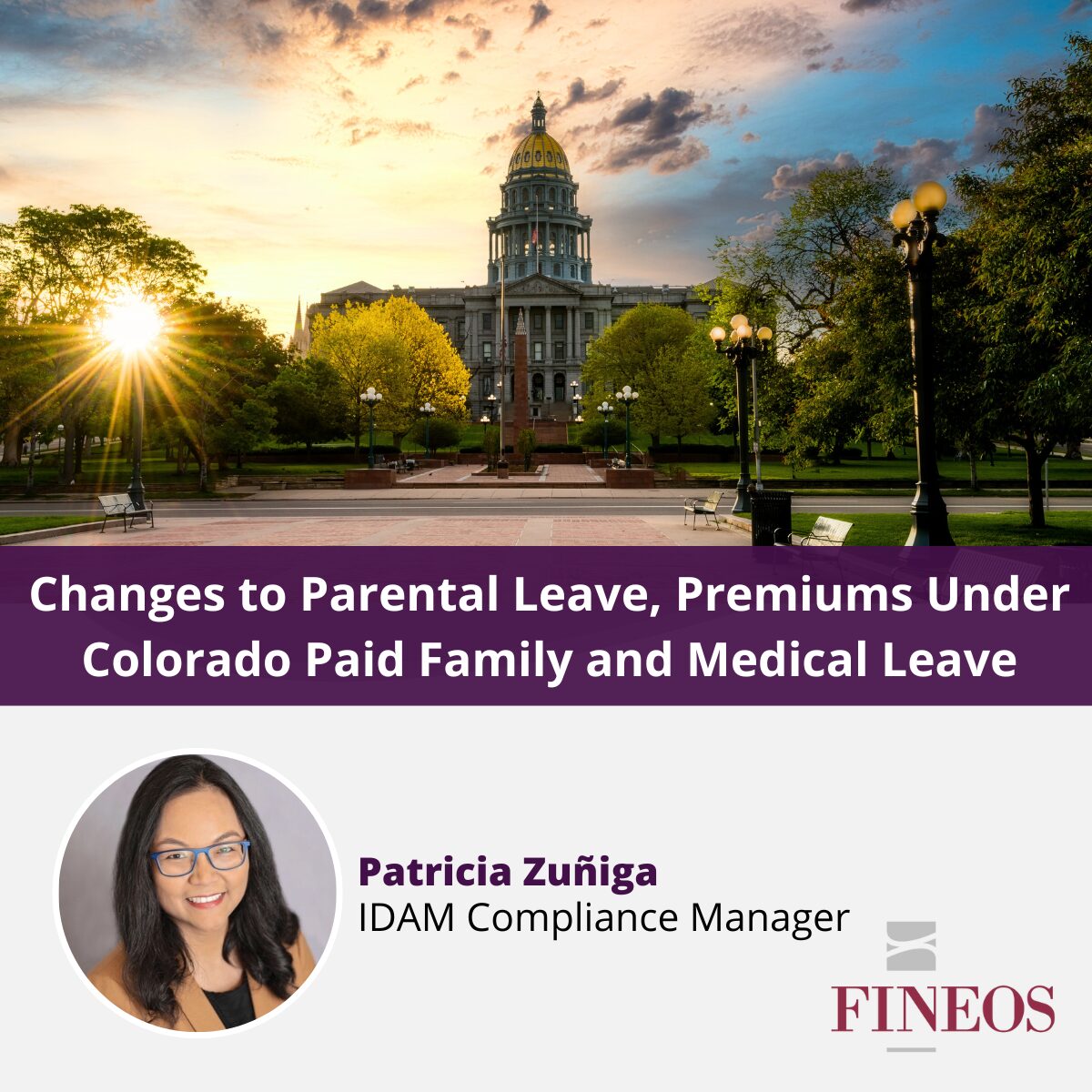In the span of one week, two states approved legislation introducing major developments to their statutory leave landscape. Here’s what you need to know now:
New York
On April 20, New York Governor Hochul signed budget legislation into law, which includes Assembly Bill No. 8805 and Senate Bill No. 8306. These bills contain the new paid prenatal leave requirement for employers, as well as sunsetting the COVID-19 paid leave provisions enacted in 2020:
Paid Prenatal Leave
Effective January 1, 2025, all employers must provide their employees with paid prenatal leave during the employee’s pregnancy. This leave is intended for health care services received by an employee during their pregnancy or related to the pregnancy, including physical examinations, medical procedures, monitoring and testing, and discussions with a health care provider. An employee can take up to 20 hours during any 52-week calendar period of paid prenatal leave; this is in addition to any other sick leave benefits the employee may be eligible for during the same 52-week period. Paid prenatal leave may be taken in hourly increments.
Employees must receive compensation at the employee’s regular rate of pay, or the applicable minimum wage, whichever is greater, for the use of paid prenatal leave. An employer is not required to pay an employee for unused paid prenatal leave upon the employee’s termination, resignation, retirement, or other separation from employment.
An employer may not require the disclosure of confidential information relating to a mental or physical illness, injury, or health condition of the employee (i.e. diagnosis or treatment records), as a condition of providing paid prenatal leave. An employer cannot discharge, threaten, penalize, discriminate or retaliate against any employee because the employee has exercised their rights to paid prenatal leave. Upon returning to work, an employee must be restored by their employer to their former position prior to the paid prenatal leave with the same pay and other terms and conditions of employment.
Expiration of COVID-19 Paid Leave (Paid Sick Leave, DBL, PFL)
The COVID-19 paid leave provisions that mandated employer-provided paid sick leave and the provision of DBL/PFL benefits when an employee is subject to a mandatory or precautionary order of quarantine or isolation will expire and is deemed repealed as of July 31, 2025.
Maryland
On April 25, Gov. Wes Moore signed Senate Bill No. 485 and House Bill No. 571 into law, delaying Maryland’s paid family and medical leave (PFML) program. This means the state will postpone collection of contributions from October 1, 2024 to July 1, 2025, and start paying benefits to eligible employees on July 1, 2026, instead of the original January 1, 2026 target.
Following the initial postponement of the PFML program, more time was recommended by the Maryland Department of Labor (MD DOL) to build the capacity to collect premium contributions and wage-and-hour reports from employers. Sen. Antonio Hayes, one of the law’s primary sponsors, stated in his testimony: “By extending the deadlines, we allow for additional time for the department to fine-tune the program’s infrastructure, address potential challenges, and provide necessary education and outreach to stakeholders.”
Changes to the Maryland PFML law include:
Definitions: The new law amends the definition of wages to match the definition of “wages” in the Unemployment Insurance law, which aims to reduce the administrative burden of calculating two different sets of wages for employers. The definition of the base period for both eligibility purposes and the calculation of a claimants’ benefits was amended to be “the previous four completed calendar quarters for which quarterly reports have been required,” which will allow the MD DOL to base its determinations on reports submitted by the employer instead of almost real-time data which would have required more employer outreach.
Private plans: An employer offering a private plan can only provide coverage through a fully insured plan, or a self-insured plan; an employer cannot provide coverage through a combination of both options. Additionally, the law clarified that an employer offering a private plan is prohibited from charging an employee more than the employee share, and not the maximum amount, of the public contributions due. The MD DOL was also authorized to adopt regulations for reasonable application and application renewal fees for private plans. Lastly, if a covered individual prevails in an appeal of an adverse decision of an employer or insurer, the MD DOL can assess costs of the appeal against the employer or insurer.
Rulemaking: The MD DOL has already released preliminary program regulations in January 2024, but employers should expect further rulemaking and additional guidance that would clarify stakeholder responsibilities under the new law amending the PFML program.
FINEOS can help with your state PFML and other leave
FINEOS will be ready to administer these new and amended laws, regulations, and guidance. Using modern insurance technology solutions like the FINEOS Platform can help companies remain compliant and competitive when leave legislation is revised and new products are authorized by governing jurisdictions. Learn how a modern, integrated disability and absence management (IDAM) solution can help your organization adapt to this rapidly evolving market and remain in compliance.


